“We shouldn’t be fishing this time of year,” John says as I lay my rod in the 4 x 4.
He’s right.
Desiccating drought and an unforgiving equatorial sun have set in and left the soil gunpowder dry. The thirst is indifferent and unyielding in its abuse. People suffer alongside dying animals in the talcum remnants of the maize crop. Farmers pray. And, the traditional rainmakers of the Luhya tribe work in secret. But the rains just won’t come. So, Kenya’s Gura – normally Africa’s fastest river – will give us uncharacteristic access to remote rainbows.
When first light cuts through the Nairobi night in an hour or so we’ll be en route to a mountain paradise that most Kenyans have never seen – and never will. Neither the irony nor the inequity of that is lost on us.
I finish loading my gear. A sprinkle lays a faint, uncertain rhythm on the canopy overhead. I imagine the Dr. Ebu flyer I’ve considered while passing it every morning on my walk to work for the last two months.
When I first saw the bill, it laid across the root of a tree, crisp and new, screaming out at me from the red dirt. Every day since, the paper and ink have lost something to the sun. The blue is now faded pastel. The paper has bubbled and failed and twisted. And, now as we drive past those roots, I imagine drops tat, tat-tat, tat on the paper. And, red dust kicking up in protest.
DR. EBU
THE SPELLCUSTER
LOVE PORTIONS
LOST ITEMS
BUSINESS BOOSTING
MAN POWER
LUCKY RING
I wonder if old Ebu had a hand in the rain, because magic is real here. Believe it or don’t. I’ve learned to make room for it. And, I want to celebrate the rain for all things Kenyan.
Then I recall the kids hiking nearby last year when an upcountry rain sent a torrent scouring the steep sides of a bone dry riverbed to carry them all away. I wonder about our day. The rain stops as we drive on.
Headlights from matatu buses shine from every angle along the road. Pedestrians and heavy Chinese bicycles totter through the beams like in a post apocalyptic game of Chicken meets Frogger meets Fight Club.
In the gloaming, silhouettes crowd the road. Small cook fires paint glimpses into a bustling market and send the sweet burnt scent of roasted maize rising. Daybreak reveals one man strapping milk cans onto a bicycle with strips of tire. Another mounts a motorcycle with a struggling shoat tied down across the seat behind him. The full sun shows a dull grey sky devoid of rainbows. On our last trip we were blessed with three in as many hours, so while their absence is unmentioned, it is not unnoticed.
Omens are everywhere, Terry Pratchett once said, you just have to find the ones that fit.
The sentiment seems at home here. And, I’ve heard that the absence of an omen is an omen. John points to the hillside site of a recent plane crash. So we turn the other cheek and watch for more promising signs. Good news comes at the small Kinja stream: no chocolate churn, but a clear, quiet current through the debris.

Beneath white clouds we turn onto an axel-buster of a stone and earthen road. It’s Sunday morning. Village women float in soft light, shining otherworldly in white dresses, in calm defiance of the red dirt at their hems.
We climb. An Aberdare National Park sign stands ahead, nodding to the donors who make this place work – Americans among them. We continue upward, eager for the parade of grouse-like birds that welcomed us last time. No dice. Bad omen. We look elsewhere.
The ranger – clad in a British military-style ribbed sweater – says we’re the first to the park today. We pay our fees and thank him. And, under the hum of the engine, I wonder how I might’ve joined the guardians of the world’s wild places. Another life, I guess. Iron and ochre dust plumes rise and fall, covering our tracks as we creep toward the promise of unmolested rainbow trout.
Then there he is. Standing broadside. Weathered rust hide the hue of LeFlore County, Mississippi dirt split by lightning white stripes. A beard runs his brisket, mimicking his Mohawk mane. His head pride high. A white chevron pops between his eyes. Ears a mule deer’s envy. And, ridged, deep-colored horns that spiral and glint in the mile-high equatorial sun. There he is. Like nothing I’ve ever seen.
Three generations ago while on safari near here, Hemingway wrote about him: “Everybody wants a kudu,” Percival had said.
And in the only way possible here now, we get ours first thing: the greater kudu – an omen if ever one had been issued. It should be a clue to the wild inside the wood line. But it isn’t. Because if you’ve never seen a pecan, how could you imagine the warmth of Thanksgiving laughter, the held breath at the stories of the morning hunt, or the easy set on a soul in the fading voices and the sweet remnant of Grandma’s pecan pie.
We step from the vehicle and then from dirt road to game trail. A thick canopy allows little understory, but hosts a light of magical realism that paints everything it touches. The only sound is ours. Some 250 birds species set lips as tight as wary toms. We walk easily until the bush comes with the dark choke of 800 plant species.
I hack through the mass until we reach elephant trails like logging roads. We push through neck hackles sent high by fresh elephant manure and wafts of buffalo so near in bush so thick that all we know is that they are up wind. And, close. I keep my ears open, an eye on the trees, and a hand on my kukri. Need be, maybe I can wound John just a little bit to slow him down and buy me time enough to get to a horizontal limb before things get hairy.
At our feet, tracks stack and crowd and eat one another.
“Big print,” John says, pointing at a canid track.
I consider African dogs until a musk snaps my eyes upwind. There’s a blur and sound. Some mine, some not. Then one thing’s clear:
If ignorance is bliss, epiphany is a sonofabitch.
This enlightenment doesn’t strike when the Cape buffalo bursts out of the bush at our feet. Or while I hump up a trunk – quiet as a scurry of squirrels flaying a loblolly pine. But as the fog clears and I see John likewise wedged in a tangle of branches, panting and grinning, that’s when the it hits me: You don’t know what you’ve gotten yourself into.
To be fair, my ignorance is self-imposed. This is our second trip to this park – a famed photo safari destination for those desperate for an encounter with Africa’s Big 5: the lion, leopard, Cape buffalo, elephant, and rhino. Since Hemingway brought the word safari from Kiswahili to the American lexicon, the connotation and the practice have changed. But, the animals have not. So maybe I should’ve considered whose den I was climbing into. As it is though, we’re having a hell of an encounter.

Limbs snap. Hooves slide in mud and pound on hard ground. And, the buffalo snatches the bush open and onward. We crawl down in the quiet. John reckons we have another half mile and I determine not to surprise anything on the way.
So, we walk. And, I call a shrill “yuuuuuuup” mimicking my rabbit hunting mentor’s song to his beagles. But, I struggle to find a rhythm to fit my breath. So, I set to a cadence of “Gettuppa! Get on uppa!" – a deer drive refrain I long ago adopted as a nod to James Brown – a reminder to me and everything else to keep moving.
And, Soul Brother Number One escorts us to a ridge overlooking a stretch of river we bet few have ever fished. The terrain funnels animals from the hills to the water here. The crossing is wide and the earth is stomped deeper than any dairy yard muck. But not a boot tread in sight.
High trees and low moss conspire with the light to make this a perfect pool. The film still and the water cellophane clear, sure sign nothing has crossed recently. I sit and watch. John readies his rod in a deafening still. Finally, one trout rises. Then another. Then more. Others rest in shadows. John rolls out a long cast. The little dry fly alights like an ash. Suurpt. Gone. I meet the little 10-inch rainbow at the bank. We’ve found them.
That trout sets the tone for the day. Gura rainbows one after another smash flies with an immediate violence that reconfirms our suspicions. Try as I might with my slam-the-fly-down-and-dare-the-little-bastards-to-hit-it presentation, I can’t keep them away. Of course John’s beautiful, forked-tongued, trout-seducing devil casts catch more, but I don’t mind: I get my self-esteem elsewhere.
We leapfrog up the pristine stream beneath a Jurassic canopy, certain a dinosaur awaits around the bend. Or maybe the next. Slick rocks steal my balance and bloody me. But, I fight to a draw with the too-tall-and-too-damned-steep-for-climbing-in-waders mud and rock face. In places, the stream is so deep and narrow and walls so high and tight that one man must cling to the wall, while the other crawls over and around to the next tight line. And, each spot produces more fish than we deserve.
Mid afternoon. Time to roll. So, we set off with my kukri and a little James Brown. We hack and crawl and call and respond and cuss and sweat. At the woodline we survey a savannah. Seeing nothing, we enter on a trail ripe with tracks and we walk until the path grows wide and easy. The woods open. And this evening’s version of the morning’s easy light returns. Something snatches my attention and sinks me into a shared gaze with black eyes some 50 yards away. Only when he turns can I pick from the bush the body of a buckskinned ungulate, the eland, Africa’s largest antelope. Good omen.
Soon dust rises into the low sun and tires bark onto pavement.
Nearing Nairobi, we re-enter the world through our phones. I recall the canid track. Hyena, of course.
“Fisi, the hyena, hermaphroditic, self-eating devourer of the dead, trailer of calving cows, ham-stringer, potential biter-off of your face at night while you slept, sad yowler, camp-follower, stinking, foul, with jaws that crack the bones the lion leaves, belly dragging, loping away on the brown plain, looking back, mongrel dog-smart in the face …” — Ernest Hemingway, The Green Hills of Africa, 1935

Dozens of East Africans are trampled by buffalo each year, earning it the moniker of “Black Death.” For me at least, the threat of a hyena encounter is far worse. I’ve seen a young ‘coon fight a pack of walker hounds. No thanks.
John quotes a story about the spotted hyenas eating the testicles off the Cape buffalo here. A muscle-bound bovine put us up a tree, but we should’ve been more worried about the dog that gnaws the balls off Black Death. That son of a bitch epiphany again.
We’ll be back and better prepared.
The rain finally comes on a Tuesday – and with all the venom of a dog breaking free from a tether to right seven years of wrongs. In a breath, the sky is black. Lead-headed rain pounds the earth. And every living thing bows in instant deference.
I don my slicker to walk to work. Newly awakened termites spew from the red ground and spiral like smoke into the grey sky. Termite wings lay like scales at a fish cleaning station. Ibis scour a hand-hoed field, heads down, grumbling aghhhh. Dr. Ebu’s bill lays across the root bed, termite wings wilting with it in the rain. Another omen.
We’ll be back when the rains allow.




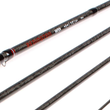
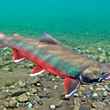
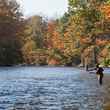
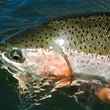
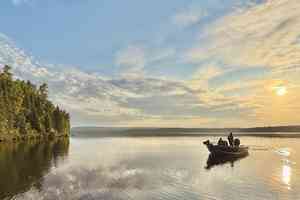



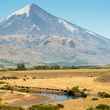
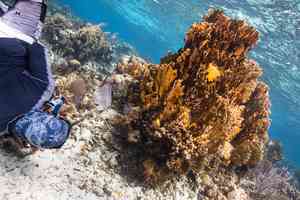


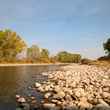



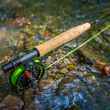
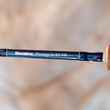
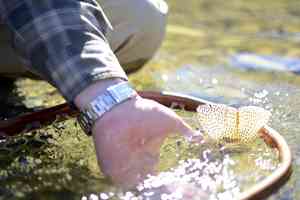
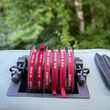

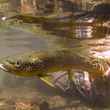
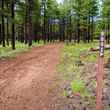
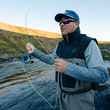
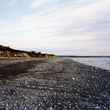

Comments
Mick replied on Permalink
I have been reading fly fishing "stories" now for over fifty years.......But this one about the jungleness' of Kenya got me. Don't know who the guy is that wrote it, but he should be Known. Just happened to tumble over your site and glad I did.
ps. would of love to seen one of them Gura rainbows that you caught on that stream that day!
I live on an off in Nepal....Shane, you ever fish the Jungle waters in Bardia National Park,
in a pristine Jungle , with the "animals" casting for "Mahsheer".
Again, great well written article, take care,
Mick Haegeland
Five14Nepal.com
Pages